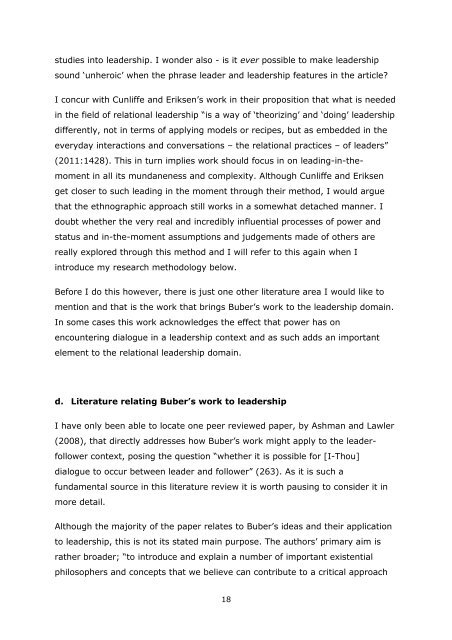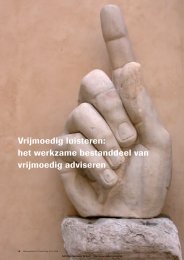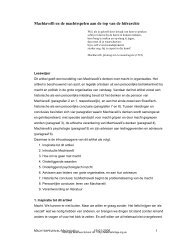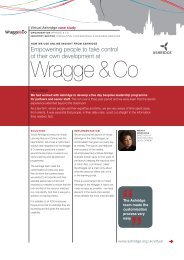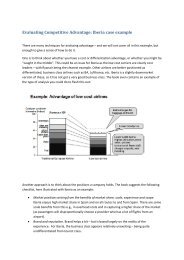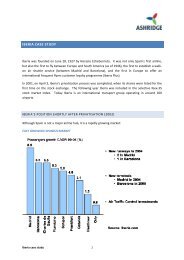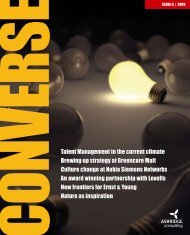“Dialogue – possible between leader and follower?” - Ashridge
“Dialogue – possible between leader and follower?” - Ashridge
“Dialogue – possible between leader and follower?” - Ashridge
You also want an ePaper? Increase the reach of your titles
YUMPU automatically turns print PDFs into web optimized ePapers that Google loves.
studies into <strong>leader</strong>ship. I wonder also - is it ever <strong>possible</strong> to make <strong>leader</strong>ship<br />
sound ‘unheroic’ when the phrase <strong>leader</strong> <strong>and</strong> <strong>leader</strong>ship features in the article?<br />
I concur with Cunliffe <strong>and</strong> Eriksen’s work in their proposition that what is needed<br />
in the field of relational <strong>leader</strong>ship “is a way of ‘theorizing’ <strong>and</strong> ‘doing’ <strong>leader</strong>ship<br />
differently, not in terms of applying models or recipes, but as embedded in the<br />
everyday interactions <strong>and</strong> conversations <strong>–</strong> the relational practices <strong>–</strong> of <strong>leader</strong>s<strong>”</strong><br />
(2011:1428). This in turn implies work should focus in on leading-in-the-<br />
moment in all its mundaneness <strong>and</strong> complexity. Although Cunliffe <strong>and</strong> Eriksen<br />
get closer to such leading in the moment through their method, I would argue<br />
that the ethnographic approach still works in a somewhat detached manner. I<br />
doubt whether the very real <strong>and</strong> incredibly influential processes of power <strong>and</strong><br />
status <strong>and</strong> in-the-moment assumptions <strong>and</strong> judgements made of others are<br />
really explored through this method <strong>and</strong> I will refer to this again when I<br />
introduce my research methodology below.<br />
Before I do this however, there is just one other literature area I would like to<br />
mention <strong>and</strong> that is the work that brings Buber’s work to the <strong>leader</strong>ship domain.<br />
In some cases this work acknowledges the effect that power has on<br />
encountering dialogue in a <strong>leader</strong>ship context <strong>and</strong> as such adds an important<br />
element to the relational <strong>leader</strong>ship domain.<br />
d. Literature relating Buber’s work to <strong>leader</strong>ship<br />
I have only been able to locate one peer reviewed paper, by Ashman <strong>and</strong> Lawler<br />
(2008), that directly addresses how Buber’s work might apply to the <strong>leader</strong>-<br />
<strong>follower</strong> context, posing the question “whether it is <strong>possible</strong> for [I-Thou]<br />
dialogue to occur <strong>between</strong> <strong>leader</strong> <strong>and</strong> <strong>follower</strong><strong>”</strong> (263). As it is such a<br />
fundamental source in this literature review it is worth pausing to consider it in<br />
more detail.<br />
Although the majority of the paper relates to Buber’s ideas <strong>and</strong> their application<br />
to <strong>leader</strong>ship, this is not its stated main purpose. The authors’ primary aim is<br />
rather broader; “to introduce <strong>and</strong> explain a number of important existential<br />
philosophers <strong>and</strong> concepts that we believe can contribute to a critical approach<br />
18


